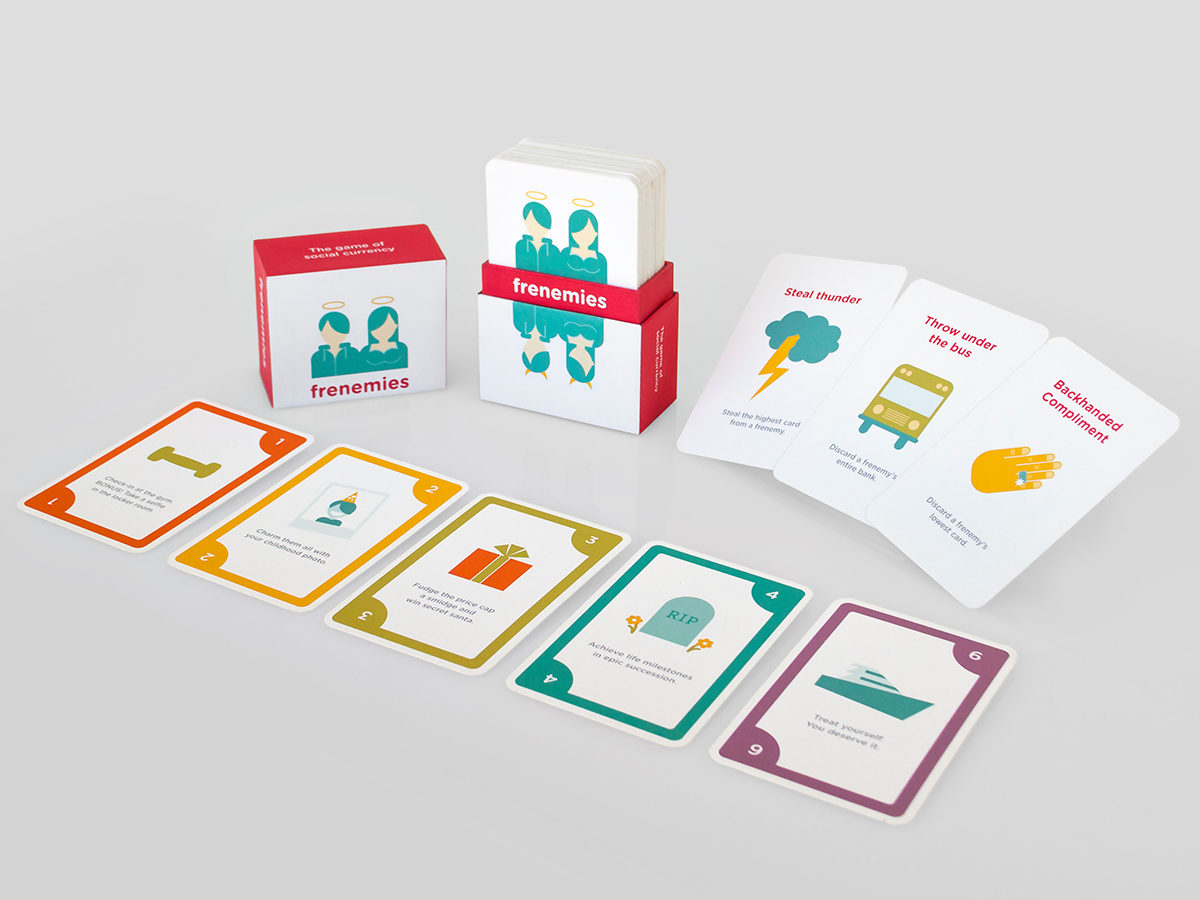Kathy Mueller
Assistant Professor
Temple University
A national study found loneliness to have reached epidemic levels in the United States, and found Generation Z to be the most vulnerable. While built with an intention of creating meaningful connections, social media may accomplish the opposite. Studies have found it increases social comparison and envy. It is especially pertinent for young people, entrenched in behavioral norms of the digital age, to think critically about how they contribute to culture. Humblebrag is a game that uses satire to draw attention to narcissistic behavior in the digital age and invite self-reflection.
In this easy-to-learn strategy card game, 4–6 players compete to earn the most social influence. Players collect influence with point value cards such as “check-in at the gym” and “craft the perfect effortless look.” To get ahead, players must keep others down through the use of action cards, such as “Backhanded compliment,” that steal influence from other players. Five cards in a bank closes the round, and the player with the highest influence wins.
The game uses entertainment to engage with themes of narcissism, selfishness, envy, self-esteem, and empathy. Presenting the behaviors outside of their native digital context exposes frivolous aspects of influencer culture. The presentation will discuss the work-in-progress, spark critical conversation, and examine outcomes—such as a potential shift in awareness, measured in a survey before and after Humblebrag game play.
This research was presented at the Design Incubation Colloquium 5.3: Merrimack College on March 30, 2019.
